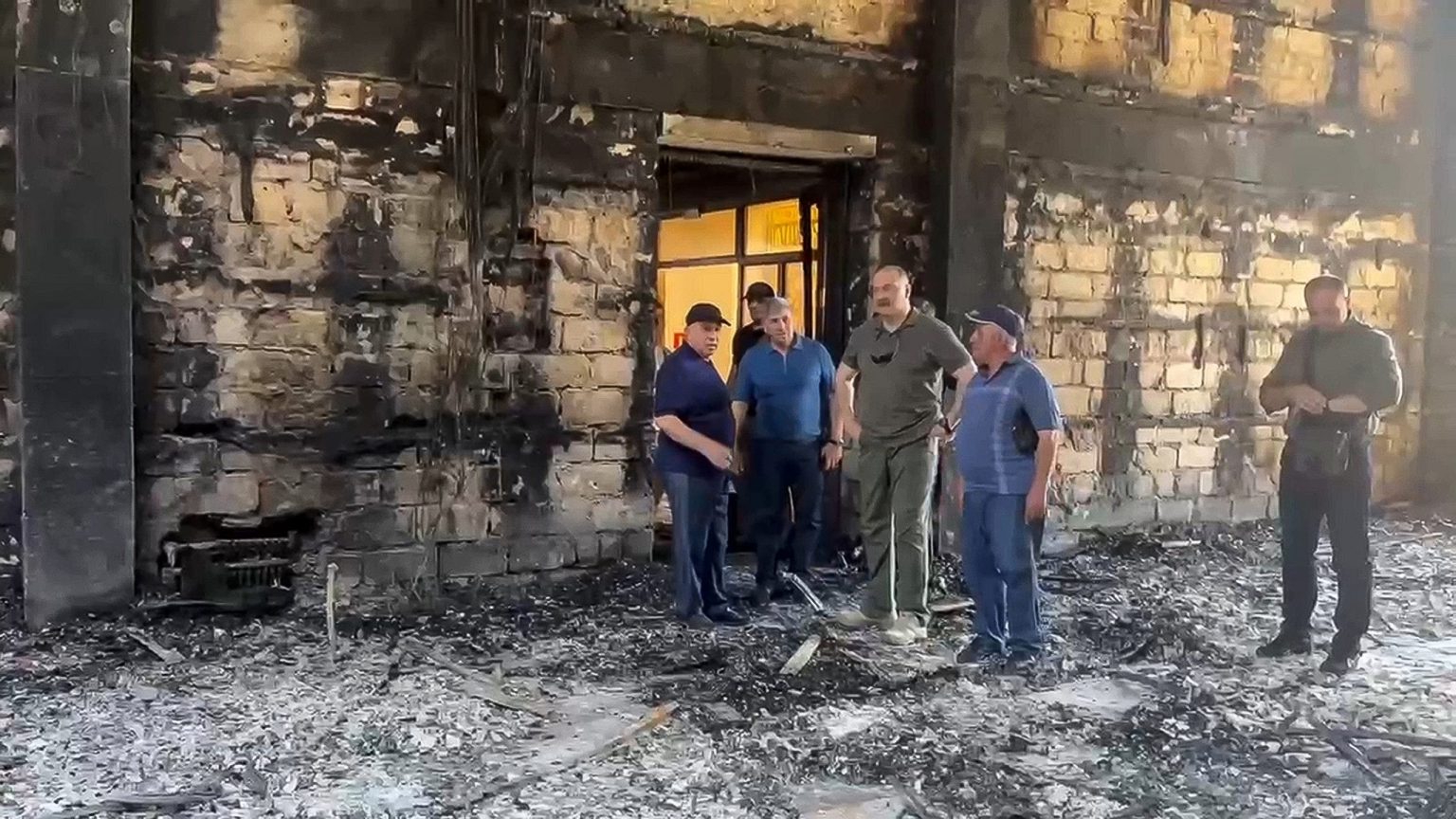A Russian official pointed to Islamic “sleeper cells” after coordinated attacks on synagogues and churches in Dagestan left at least 20 people dead. The violence was the deadliest in Russia since a similar attack in March, blamed on Islamic extremists in the North Caucasus. The Islamic State group in Afghanistan claimed responsibility for the March attack and praised the recent one in Dagestan. Dagestan Gov. Sergei Melikov blamed members of Islamic “sleeper cells” directed from abroad, linking the attack to Moscow’s military action in Ukraine without evidence. President Putin had previously blamed the March attack on Ukraine, despite the Islamic State affiliate’s claim of responsibility.
Of the 20 killed in the attacks in Derbent and Makhachkala, at least 15 were police officers. Medical authorities reported at least 46 injuries, with 13 of them being police, including four officers in critical condition. Among the dead was Rev. Nikolai Kotelnikov, a 66-year-old Russian Orthodox priest whose throat was slit by the attackers before they set fire to the church in Derbent. The Kele-Numaz synagogue in Derbent was also set ablaze during the attacks. The attackers were later killed by special forces after attacking a police post in Makhachkala.
The FBI Director warned of a heightened terror threat following the Biden administration’s withdrawal from Afghanistan and Hamas’ attack on southern Israel. Former CIA Deputy Director Mike Morell expressed concerns about intelligence gaps hindering efforts to vet illegal immigrants and urged urgency in addressing the terror threat. The Institute for the Study of War suggested that the Islamic State group’s North Caucasus branch, Vilayat Kavkaz, was likely behind the coordinated attack in Dagestan, calling it “complex and coordinated”.
The attackers in Dagestan included the two sons and a nephew of Magomed Omarov, head of the Dagestan regional branch of the pro-Kremlin United Russia party. They had been detained for interrogation, with Omarov subsequently removed from his post by United Russia. In the early 2000s, Dagestan faced daily attacks by militant extremists, with residents joining the Islamic State group in Syria and Iraq. While violence had decreased in recent years, extremist sentiments remained high, evident in mobs rioting at an airport targeting a flight from Israel in October.
Following the March attack in Moscow, Russia’s security agency reported breaking up a terrorist cell in southern Russia and arresting four members who had provided weapons and cash to suspected attackers in Moscow. The recent attacks in Dagestan signal ongoing challenges with extremist activity in the region. The Associated Press contributed to reporting on the incidents, highlighting the ongoing threats and response efforts in the face of terrorism in Russia.


